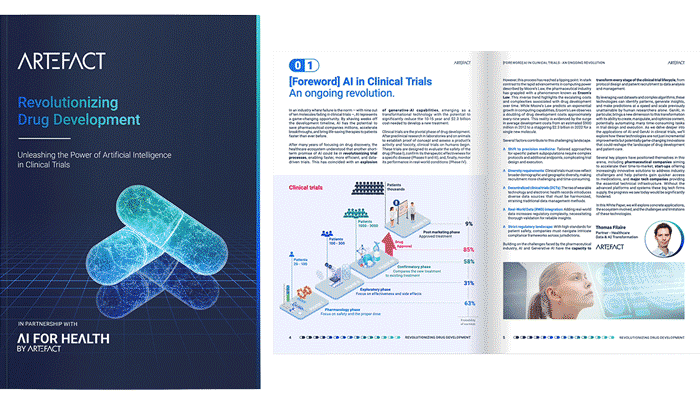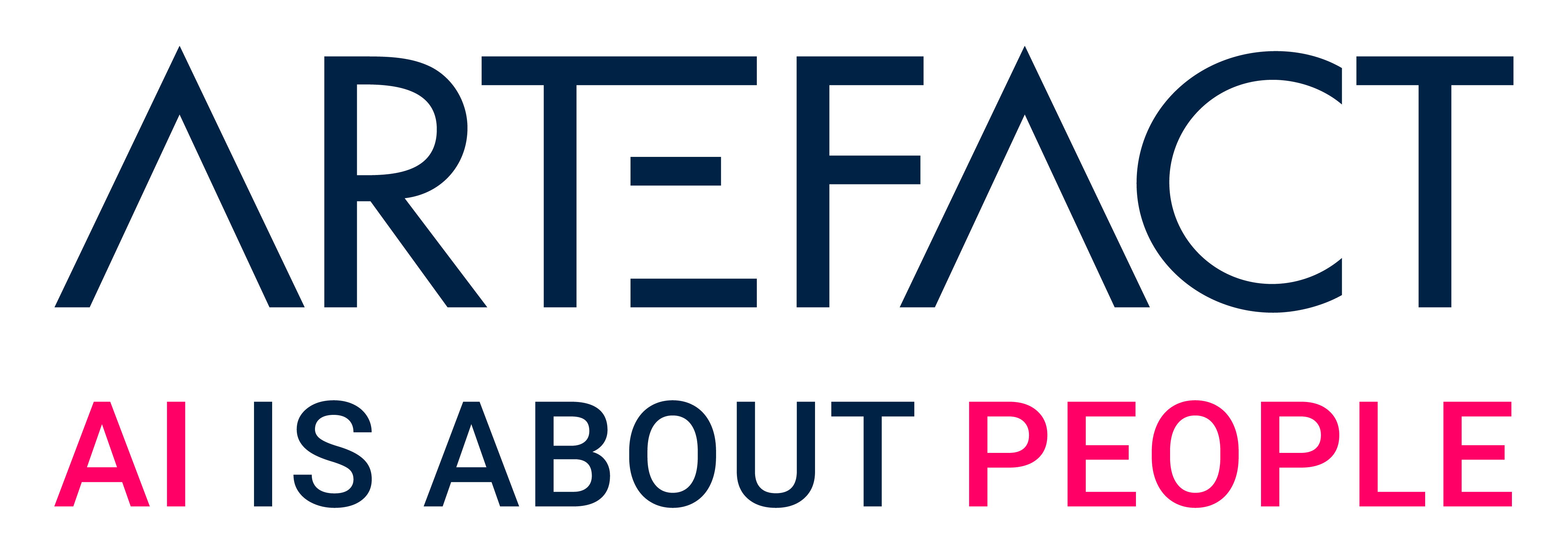AI for Health Summit - 2024 Edition
Key learnings from the panel discussion on “Unleashing the power of AI in Clinical Trials” with Luca Mollo, Vice President, Medical Director France, M.D. at Pfizer, Thomas Filaire, Partner at Artefact, and Léa Giroulet, Senior Data Consultant at Artefact.
The discussion revolved around the transformative role of AI in clinical trials, supported by insights from Pfizer and Artefact, and highlighted in their collaborative white paper. It showcased concrete use cases, ecosystem mapping, and challenges to scaling AI innovations.
Artefact’s motivation for the white paper
Artefact identified a growing demand for AI in R&D, driven by its potential to shorten clinical trial durations by up to 50%, accelerate the delivery of innovative therapies, and ensure competitiveness for pharma companies. The use cases explored in the white paper are already being implemented or integrated into the mid-term strategies of stakeholders.
Pfizer’s use of AI in drug discovery
Pfizer leverages AI to analyze datasets, identify drug targets, predict efficacy, and optimize development. For example, during the COVID-19 pandemic, AI enabled Pfizer to reduce molecule screening from 3 million to 600, accelerating the development of an oral antiviral drug from four years to four months. Additionally, AI facilitated new methodologies like decentralized clinical trials and remote monitoring, helping reduce average drug development timelines from 8.6 years in 2019 to 4.8 years by 2022.
Key phases of clinical trials
The white paper breaks the clinical trial value chain into three phases: design, patient recruitment, and execution. For trial design, large language models (LLMs) extract safety and efficacy data from previous trials, streamlining study protocols. Patient recruitment benefits from AI models analyzing demographics and medical history to predict dropout rates, ensuring trial continuity. Execution and management are enhanced through AI-driven data processing, reducing the time needed for report generation and submission to regulatory authorities.
Clinical data management advancements
AI automates labor-intensive tasks like cleaning, processing, and analyzing clinical data, uncovering patterns and correlations that traditional methods might miss. During the COVID-19 vaccine development, AI enabled Pfizer to draft regulatory reports in 48 days, compared to 100 days traditionally. This accelerated timeline allowed faster market entry and improved patient access.
Challenges in scaling AI innovations
The main challenge lies in establishing robust data foundations, including governance and compliance frameworks. While initially perceived as costly and slow, these foundations are critical for long-term scalability and delivering AI-driven use cases effectively.
Conclusion
AI is revolutionizing clinical trials by shortening timelines, improving efficiency, and enhancing patient outcomes. However, success hinges on addressing data governance challenges and fostering collaboration across the healthcare ecosystem.

 BLOG
BLOG




